Leveling the playing field in South Africa with sport
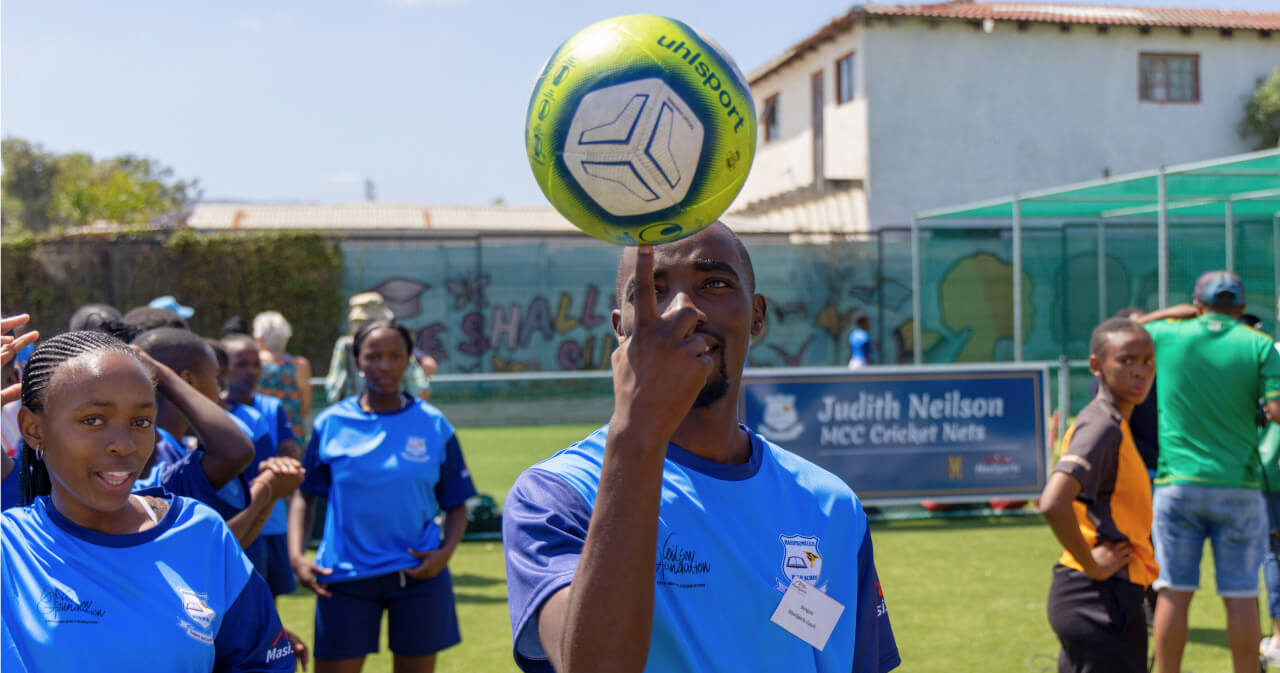
In just 30 years, Cape Town’s Masiphumele township has become home to some 50,000 people within less than half a square kilometer. Over half its residents hail from the Eastern Cape, with many others coming from neighbouring countries to the north like Zimbabwe, all in search of new opportunities.
Despite high unemployment and widespread poverty, Masiphumelele is a dynamic, resilient community with a thriving informal economy and two growing schools. Since 2017, school attendance has nearly doubled, even as many students face the challenges of growing up in households without adult supervision.
Amid these realities, MasiSports NPO Masiphumelele is using sport to transform lives—strengthening education, opening pathways to employment, and building social cohesion. We spoke with the MasiSports team, along with local educators and coaches, about the hurdles young people face and the organisation’s vision to expand its successful Sports for Development model through partnership networks.
Building futures through sport and education
While school enrolment in sub-Saharan Africa has surged in recent years, the quality of education has not kept pace. Nearly 90% of children still struggle to read by the time they leave primary school. In response, MasiSports has launched a learning support program to help students transitioning from their local languages to English in Grade 4.
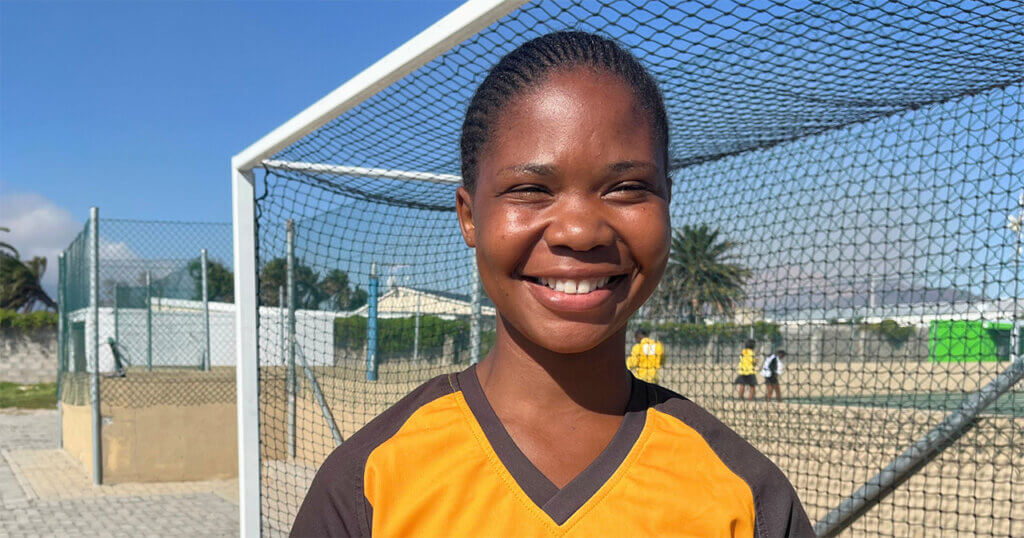
At Ukhanyo Primary School, MasiSports coach Pamela Ngewana reflects on the transformation she has witnessed over the past seven years. “When I first started, there were no sports fields, no equipment, and very few coaches. The kids had nowhere to go after school,” she says. Now, thanks to MasiSports, the township’s schools boast sports facilities, trained coaches, and vibrant after-school programs.
“The sports fields aren’t just for playing—they’re places where kids can build life skills and connect with positive role models,” Pamela says. “Through sport, we teach the importance of education, discipline, and making positive choices.”
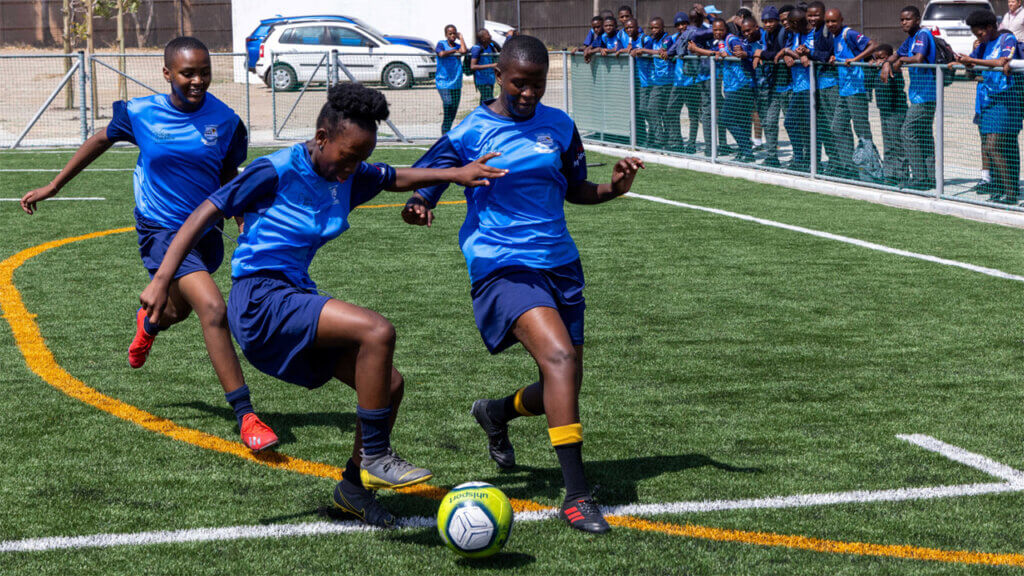
Partnering to strenghten girls’ education
Girls in Masiphumelele face additional hurdles like early marriage, pregnancy, and health issues. Facing these challenges, MasiSports partners with the Desmond Tutu Health Foundation, an organisation working to improve community health and shape health policy. Together, they focus on issues of child pregnancy and HIV, helping girls stay engaged in school and strengthening their overall wellbeing. MasiSports Netball Coach Fez Payi highlighted some of the obstacles girls face in accessing education.
“In our community, many teenage girls end up taking on parenting roles while still needing guidance themselves,” Fez explained.
Coaches like Fez offer crucial support by listening, encouraging, and guiding students. “When just one person listens, it makes a huge difference in their life. We have bright kids here, coming from disadvantaged homes, and we want them to see the possibilities outside of that.”
Preparing young people for a competitive job market
Sub-Saharan Africa is experiencing a demographic boom, with 12 million young people entering the job market every year. By 2050, it is projected to have the largest and youngest workforce in the world. However, fewer than one in four school graduates in South Africa secures formal employment. In a country where unemployment rates stand at 35%, the need for job-ready skills has never been more urgent.
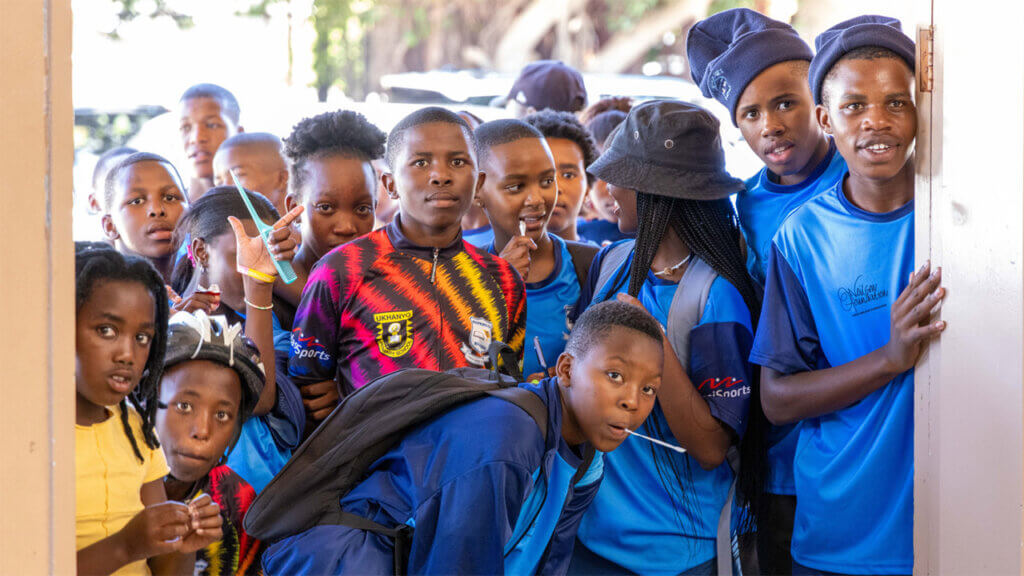
Tabisa Mafenuka, a Grade 12 maths and science teacher at Masiphumele High School, explained that many students struggle to afford further education or secure employment. Yet, she has observed that participation in sports leads to improved academic performance and greater confidence among students. MasiSports is helping to bridge this gap by promoting literacy, numeracy, and life skills.
“We give children opportunities to excel through sport, and we connect them with potential employers and scholarship programs,” said Althea Farmer, MasiSports’ Chief Operating Officer.
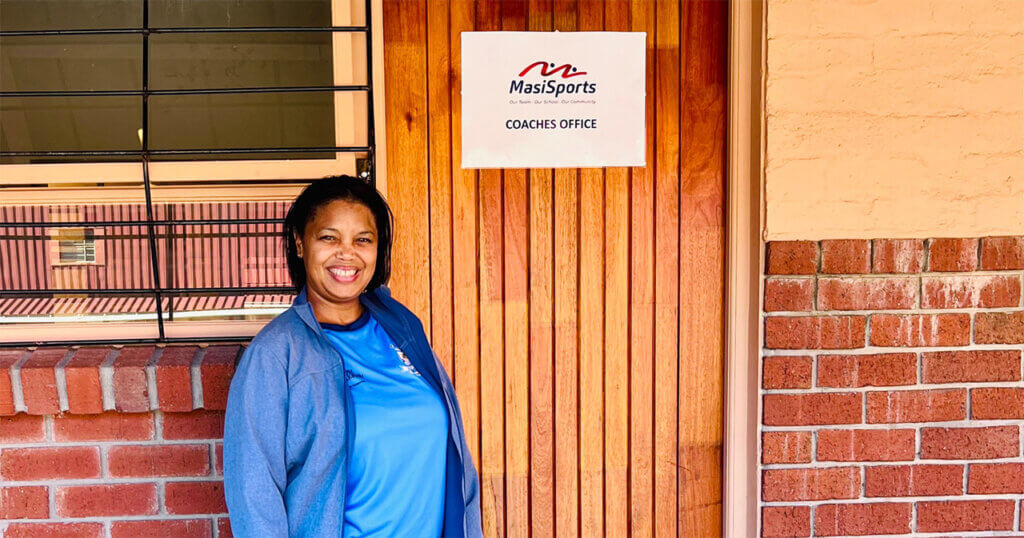
MasiSports addresses these challenges by fostering literacy and numeracy, promoting girls’ participation, and building essential life skills. “We provide children with opportunities to excel through sport, offer career guidance, and connect them with potential employers and scholarship programmes,” explained Althea Farmer, MasiSports’ Chief Operating Officer.
Expanding the model across South Africa
With a guiding philosophy of “start anywhere, go everywhere,” MasiSports aims to replicate its success in schools across Cape Town and beyond. So far, four schools have adopted the model, and early results are promising.
The resilience of the students, teachers, and coaches at MasiSports shows the power of sport as a catalyst for social change. As Althea observed, “Our continued success shows that no matter where you begin, the possibilities are endless when you remain flexible, follow the evidence, and adapt to what you learn.”
Learn more about MasiSports NPO Masiphumelele and their work in South Africa: https://masisports.co.za/